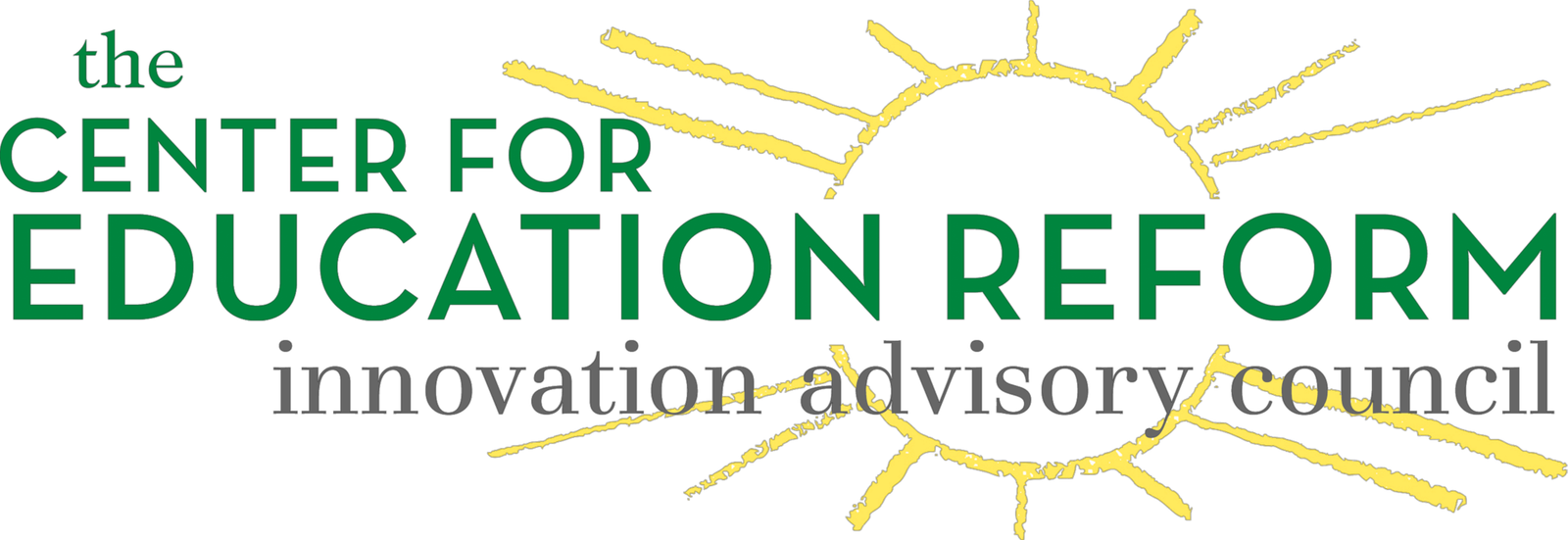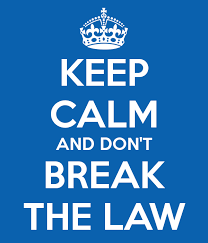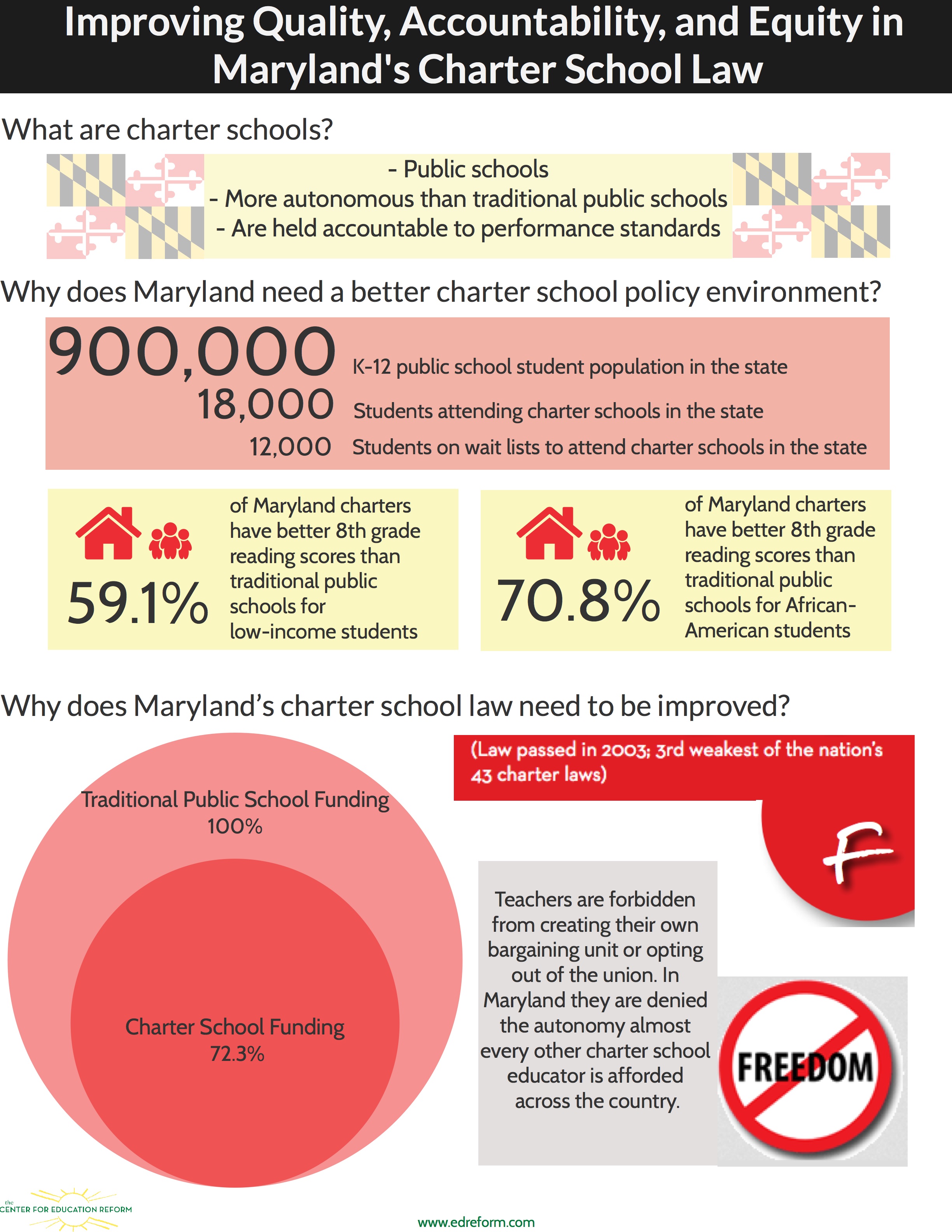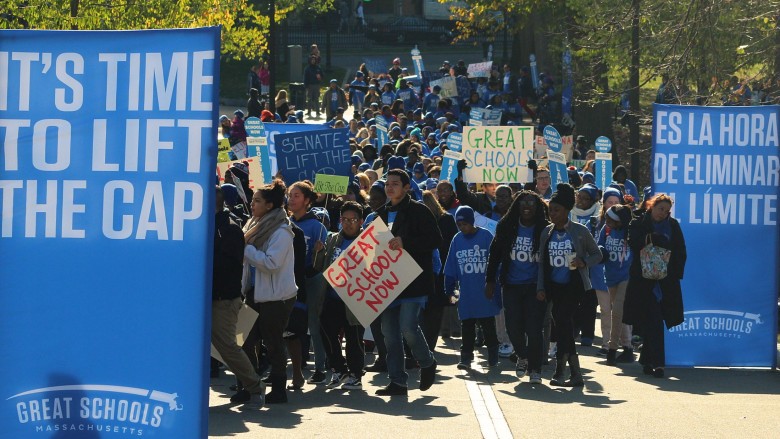by Michelle Tigani
Frederick News Post
April 25, 2016
If Maryland wants to create more opportunities for excellent education, attract new business and improve teacher salaries, as proposed in Rolan Clark’s April 4 letter, “Teachers’ pay needs to improve,” then it’s time to address Maryland’s F-rated charter school law.
Currently, public charter schools in Maryland are operationally limited, poorly funded and lack the ability to hire their own principals and staff to ensure success under their model. Schools like Frederick Classical Charter School are forced to go to court to fight for their fair share of funding, despite the fact that Maryland law states that their funding must be “commensurate” and at the same level as traditional public schools.
Changes to Maryland’s charter school law proposed last year would have given charters a 98 percent match with traditional public schools on operational funds, as opposed to the less than 80 cents on the dollar for school operations that they currently receive. When Frederick Classical Charter School heard the news of potential changes to Maryland’s charter law, they planned for an across-the-board pay increase of 10 percent for their teachers. Unfortunately, the state teachers union fought hard to oppose the proposed measures. So teachers in Maryland charters are still waiting for the increased freedom and flexibility that charter schools nearly everywhere else nationwide enjoy.
After more than 16 years of studying charter school laws, we know that charter schools thrive in states that have laws that ensure equitable funding, accountability for results, flexibility and autonomy, including the choice to be operationally free from union contracts, and multiple and independent charter school authorizers. When given freedom, charter schools take hold of their own staffing and create a salary system based on skills and performance, and they reject the uniform and fixed salary levels in traditional public schools that have been comfortably adhered to and influenced by teachers unions.
In fact, the nation’s first charter school was opened in Minnesota in 1992 by a teacher who felt constrained by rules that were negotiated for her by the school district with union leadership, so she sought to provide more opportunity for educators through charter schools.
Expanded schools increase revenue to public education, from within and outside the state, allowing teachers more access to funds, not less. New schools permit teachers more opportunities to grow and learn. Research has shown that charter schools create a ripple effect on other schools, putting pressure on them to do more and to do it better. Charter schools can be part of the solution, but only when we have a law that allows them to thrive and function at their highest potential.
Michelle Tigani is communications director for the Center for Education Reform in Washington.












 n the present and future of ed-tech and innovation via action-packed panels we’ll be holding every day!
n the present and future of ed-tech and innovation via action-packed panels we’ll be holding every day!
 L.A. CHARTER BUCKS. The Los Angeles Unified School District must pay Ivy Academia Entrepreneurial Charter School $7.1 million dollars for
L.A. CHARTER BUCKS. The Los Angeles Unified School District must pay Ivy Academia Entrepreneurial Charter School $7.1 million dollars for  MARYLAND CHARTERS. Evidence that Maryland’s
MARYLAND CHARTERS. Evidence that Maryland’s 
